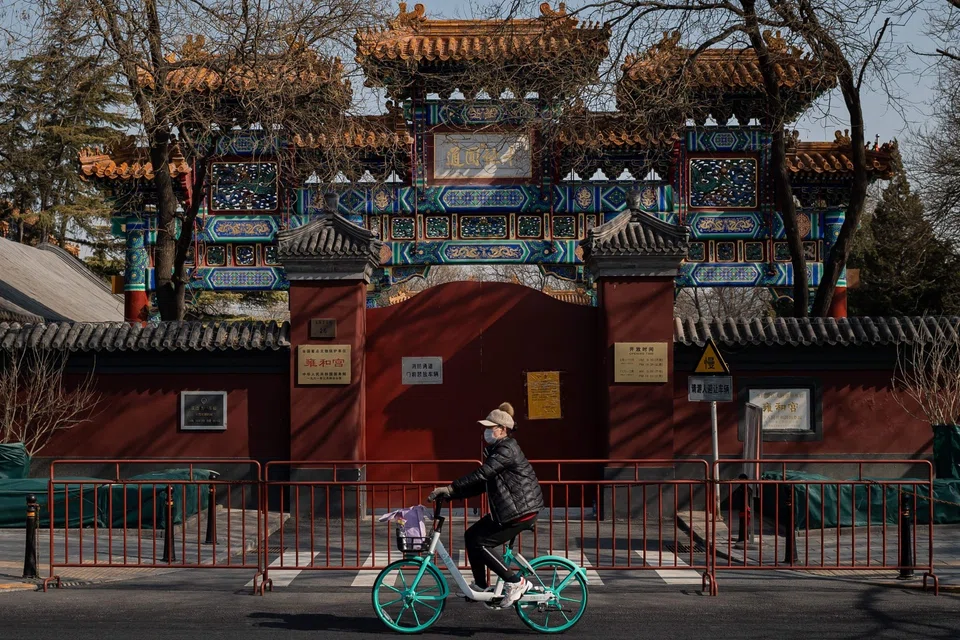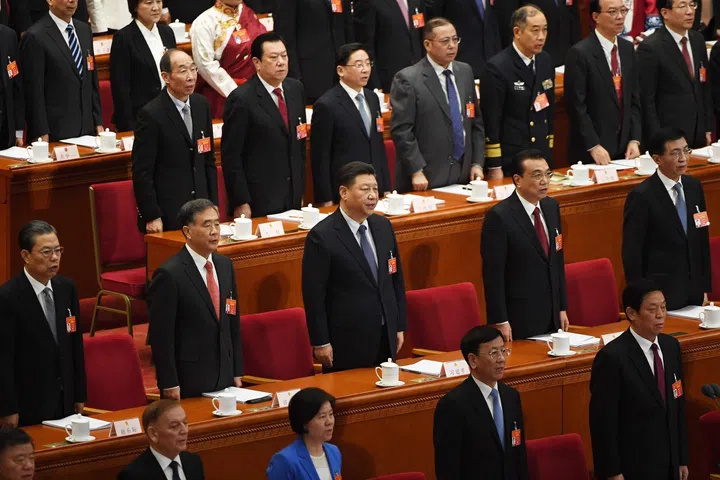Safeguarding Beijing
Three cautionary warnings have been issued in the last six days by the Chinese government, calling on officials to pay special attention to containing Covid-19 in Beijing. Beijing correspondent Yang Danxu observes that the authorities' political survival is at stake if Beijing becomes severely affected by the coronavirus. All hands are on deck to ensure that this does not happen.

The upper echelons of the Chinese government have issued three cautionary warnings in the last six days to its officials, calling for them to pay special attention to containing Covid-19 in Beijing. Analysts say that although Beijing does not have a high rate of new confirmed cases, it is the most important city to protect outside Hubei. Given Beijing's status as the country's capital, maintaining its image and functions of government during the epidemic are of top priority.
According to a report by China Central Television's daily news programme Xinwen Lianbo (新闻联播), the Politburo Standing Committee of the Communist Party of China met on 26 February to review and discuss their efforts on fighting the Covid-19 epidemic. Seven members of the standing committee, including Chinese President Xi Jinping, pledged donations in support of the prevention and control efforts.
...a government employee of the municipal government of Beijing's Xicheng District was confirmed to be infected with the Covid-19 virus, causing 69 others to be quarantined as well.
The meeting not only stressed the continuation of concentrating "strength and resources on epidemic prevention and control in Hubei and Wuhan", but also specially mentioned that "prevention and control work in Beijing and other key provincial-level regions should be strengthened". This is the third time that Chinese top officials have specifically named Beijing since 21 February. The emphasis shows the highly cautious stance top officials are taking towards the situation in Beijing.
Health of the capital reflects strength of the party and country
The Politburo Standing Committee of the Communist Party of China made the first mention of doing "our best to prevent and control the epidemic in Beijing" at its meeting on 21 February. Three days prior, a government employee of the municipal government of Beijing's Xicheng District was confirmed to be infected with the Covid-19 virus, causing 69 others to be quarantined as well.

At a national teleconference attended by 170,000 officials of all levels on 23 February, President Xi issued a warning directed at Beijing's containment of the virus yet again. He emphasised that "the security and stability of the capital city have a direct bearing on the overall work of the party and the country".
In contrast, Beijing implemented even tighter preventive measures to guard against a possible recurrence.
He said that imported cases and spread within the city should be prevented, and urged officials to work to the best of their abilities to cut off sources of infection, and to get the epidemic under control. He also called for the safeguarding of Beijing's entry point - the first line of defence - and the maintaining of good health monitoring systems and manpower management. He further called for efforts to strengthen the combined preventive measures of the Beijing-Tianjin-Hebei region, and asked for other provinces to ramp up their support for epidemic prevention and control.
On 25 February, China saw an increase of 406 confirmed cases domestically, out of which only five were from regions outside of Hubei. This single-digit increase had been maintained for the second consecutive day.
In light of these figures and recent progress in containment efforts, over ten provinces in China lowered their emergency response levels. In contrast, Beijing implemented even tighter preventive measures to guard against a possible recurrence.
The Beijing Municipal Health Commission announced yesterday that it would ramp up its efforts against imported cases, and requested all travellers coming from foreign countries hit by the outbreak to undergo a 14-day self-quarantine or centralised quarantine. This move is believed to be implemented in response to the worsening outbreak in neighbouring countries such as Japan and Korea.
Tighter control on arrivals and departures
Five departments in Beijing also issued a joint statement on 24 February, detailing ten preventive measures that office workers should adhere to, such as maintaining a 50% cap on attendance rates and ensuring a one-metre distance between each employee.
We understand that a few residential areas have further tightened their access controls, with several implementing temperature checks upon entry and exit. Mr Xu, a property manager, told us that property management companies have repeatedly issued notices of tightened preventive measures, requesting all residents to apply for a mobile location report from telecommunication companies starting this week, as proof that they have not left Beijing over the past 14 days. Only then would they be given access passes to their residences.

According to statistics from the Beijing Municipal Health Commission, there were no new confirmed cases in Beijing on 25 February. A day prior, Beijing's Dongcheng District reported a new confirmed case. This infected patient was an ex-offender who had just been released from prison in Wuhan. Already showing fever symptoms there, he was brought home to Beijing on 22 February. As of 25 February, Beijing has a total of 400 confirmed cases with a death toll of four.
Yang Gonghuan, deputy director general of the Chinese Centre for Disease Control and Prevention, told us that apart from a few new confirmed cases in Beijing recently, the capital's overall situation is stable. She believes that stricter preventive measures were implemented out of political considerations as "Beijing is the country's capital and the epidemic situation here holds a certain symbolism".
In practical terms, as Beijing is the venue for major meetings and diplomatic events, a resurgence of the Covid-19 outbreak in Beijing will greatly affect the capital's functions. Thus, to keep the country humming normally as much as possible, officials are being extra vigilant.
Following the rapid escalation of Covid-19 before the Lunar New Year, apart from Cambodian Prime Minister Hun Sen's visit in early February and Serbian First Deputy Prime Minister and Foreign Minister Ivica Dačić's arrival yesterday, Beijing did not have any other diplomatic activity.
Officials have also decided to postpone the "Lianghui" (annual meetings of the National People's Congress, and the Chinese People's Political Consultative Conference), originally taking place next week. However, no specific date as to when the meetings will be rescheduled was announced.





![[Photos] Fact versus fiction: The portrayal of WWII anti-Japanese martyrs in Taiwan](https://cassette.sphdigital.com.sg/image/thinkchina/3494f8bd481870f7c65b881fd21a3fd733f573f23232376e39c532a2c7593cbc)